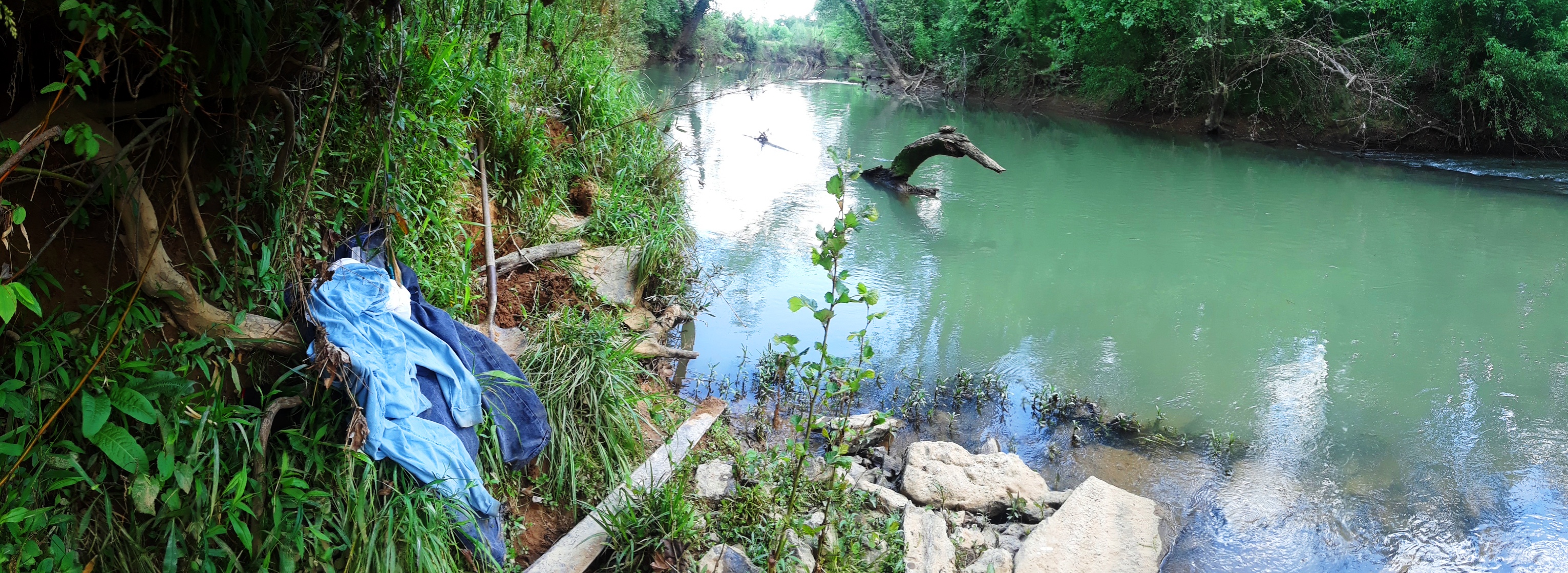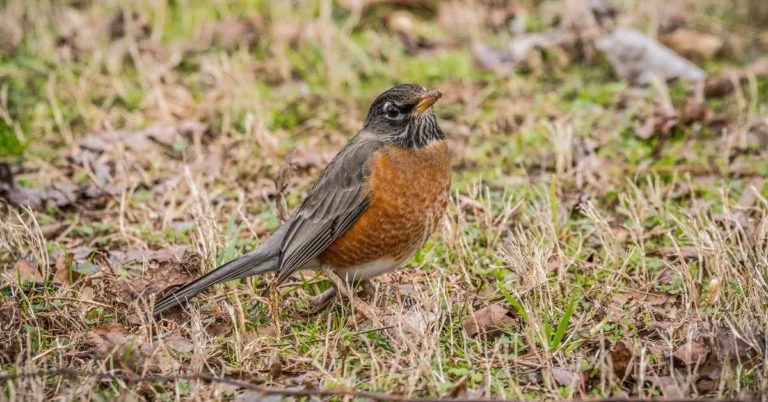My Thoreau-ly Walden-esque Experiment: Is This Lifestyle Sustainable?
Is Nature’s Guys nature-focused lifestyle sustainable? It is a question I’ve asked myself a lot, perhaps no more than yesterday when, with an allergy-induced fever, I worked myself into a sweat clearing away privet bushes, planting an elderberry plant and a yellow squash by the creek, cleaned out the ditch of old, disgarded tires; and finally sought cool refuge by removing my sweaty clothes and wading out into the cool, flowing waters of West Chickamauga Creek.
Nothing I did yesterday made me any money. Although it brought me tremendous satisfaction and even thrilled me several times as I discovered a wild grape vine, new flowers, an unoccupied bird’s nest; and as I made the “accomplishment” of, first, swimming / wading out and touching “Chicka”, the log which looks a little like the Loch Ness monster “Nessie”, then wading and swimming completely across the creek just above the pre-Civil War Native American fishing weir, symbolically touching the tree on the other bank (in the Chickamauga National Military Park) holding what is probably a heron’s nest, none of those activities brought me any money. Although filling up my bucket with creek water to lug across the field to water the newly-planted elderberry and squash connected me with African villagers, with others who’ve had to carry buckets of water over long distances until their arms and hands screamed out for mercy from the pain, and even connected me to my past and my own ancestors, who had to carry buckets of water from the spring in Winneconne to bathe, wash dishes, cook and drink, none of that made me any money.
So it left me thinking about if this type of life-style, of going out into the woods every day, of researching, of identifying new plants and birds, of feeling the cool creek water caress my hot and sweaty body as it reduced my fever, is that lifestyle sustainable?
I thought about Henry David Thoreau, who lived in the woods near Walden Pond for 2.2.2: Two years, two months and two days. How did he do it? And, more importantly, why did he stop?
Turns out he was living on land owned by his friend and mentor, Emerson. Turns out his experiment was not meant to be a permanent choice, but rather a one-time recentering designed to alter not only his way of thinking, but the thoughts and minds of numerous others (including myself).
But then what? He went back to his Boston lifestyle, kept writing, kept discussing, kept thinking. But how often did he get back out into the woods after the Walden experiment? How often did he shuck it all and repeat his morning religious experience of immersing himself — as I had — in cool waters? Or did he just go back to being, as he described it, a prisoner to making money, to surviving?
Most importantly, for me, are the questions: What do I have to do to keep living like this? Is it even right and fair (to others, and to the world) that I do so? Is there a higher and greater good I should be pursuing? How should I be serving? OR, is the highest and best good I can pursue is to document my time in the woods, in the fields, in the creek? Should I be relating and explaining what I’m experiencing? If so, to what end? To encourage others to take a little time, to find and document their own time, to experience for even a few minutes a day what I am blessed to want to experience several times a day, sometimes for hours on end?
Truthfully, I don’t know the answer. I do know I feel a higher call to encourage people to get out more, to experience more, to take more time. Doing that 100% of the time is probably not sustainable. But perhaps, learning to do it at least part time IS sustainable, and it is what I’m supposed to be doing. After all, Thoreau didn’t spend his entire life on the shores of Walden Pond, but he changed the lives of millions who read his work. Maybe my calling is to help people of today, in this frenetic, complicated world, understand how they can take a moment, connect, and find themselves.
Maybe.

For more information on Thoreau’s “cost of living”, I found this article helpful: http://www.sparknotes.com/lit/walden/section1/
